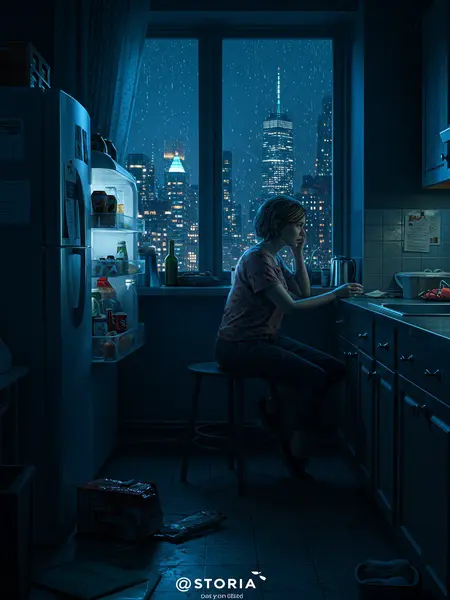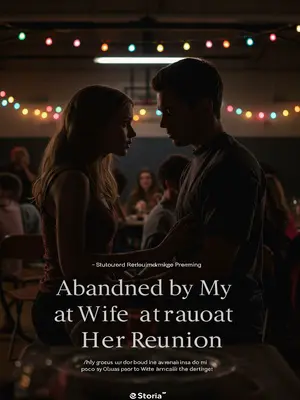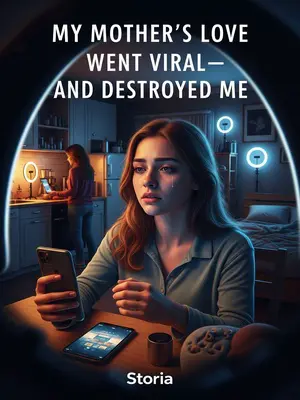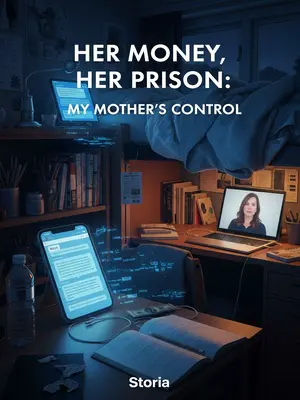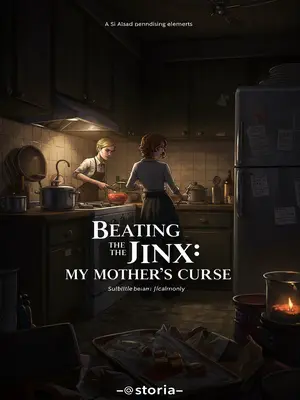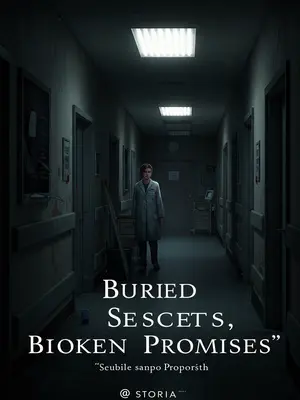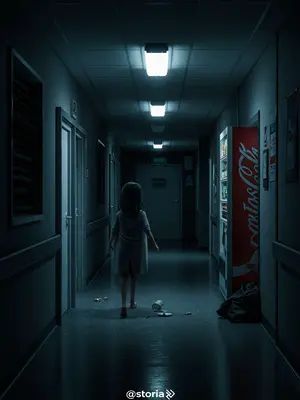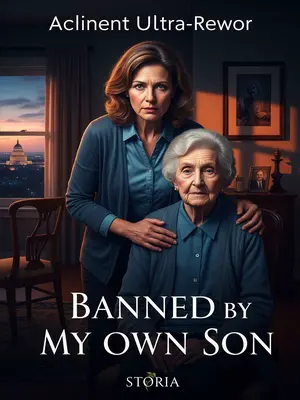Chapter 1: The Meeting That Wouldn’t End
My phone wouldn’t stop buzzing—right in the middle of my big pitch.
The conference room was freezing, the hotel’s air conditioning humming overhead, but sweat still slicked my palm. I gripped the laser pointer in one hand, the other fumbling for my phone. My thumb slid desperately over the screen, trying to hit airplane mode, but my skin was too clammy and the phone too smooth. My face burned. Every ring felt like a spotlight, and I wanted to melt under the shiny new table. The low hum of client voices only made it worse, their glances polite but confused.
Closest to me, the chairman caught sight of my screen—Mom. He leaned over, voice gentle and American-casual: “If it’s your mom, you should probably take it. Family comes first.”
He nodded, eyes warm but all business, giving me permission and a way out. It was the kind of small grace you rarely get in a Chicago boardroom, but today I was grateful.
Mr. Carter, my boss, jumped in right away: “I’ll update everyone on the team’s progress first.”
He flashed a reassuring half-smile—quick, practiced, like he’d seen a hundred working parents try to juggle it all. I clung to that look, even as my nerves frayed.
The chairman shifted his gaze to the window, the skyline outside pure Chicago—gray, endless, and humming with possibility. That gave me a second to breathe as I scrambled for the door.
I rushed out into the hallway, almost in tears. “Mom, I told you I have a really important meeting today. Why do you keep calling and calling?”
I could taste copper at the back of my throat, the kind of panic that comes when your whole career is on the line. My voice cracked, echoing in the hallway lined with framed motivational posters. The click of my heels sounded too loud, too exposed.
My mom said, “Is Tyler’s backpack in your car? Hurry back and check.”
I stared at the ceiling, picturing the backpack, the gridlocked traffic, all the ways this day could unravel. The urgency in her voice made my chest squeeze tight.
“What backpack?”
My words snapped out sharper than I meant, pressure mounting.
“The backpack! Tyler’s backpack! He says it’s in your car. Go check right now, he needs it for school.”
Her tone rose, exasperated, scolding me like I was still a kid who forgot her homework.
Then it hit me. Two days ago, I’d driven my son to his after-school program. He’d left his backpack in the backseat and never brought it home.
I could picture his little hands forgetting it, dashing off with a laugh. Guilt pricked at me.
“The backpack is in the car, it’s fine. School doesn’t start for a few more days.”
I tried to sound reasonable, hoping logic would work.
My mom yelled, “No, you can’t just leave it in the car! Tyler needs to get his textbooks ready. Come back now and get it.”
Her voice echoed in my memory, the same sharp urgency as when she’d catch me sneaking cookies or leaving dishes in the sink.
My knees threatened to buckle, but I locked them tight, refusing to fall apart in a Hilton hallway. “I’m on a business trip in Chicago. I can’t come back today. I’ll bring the backpack home when I return.”
I could hear the waver in my own voice, fighting to stay polite while drowning in desperation.
“Business trip? Why do you have to go on a business trip? Does the company have to send you? Can’t someone else go?”
That familiar cascade of questions—each one a pebble tapping the glass, relentless.
“I told you, I’m on a business trip today. This project is really important. Please, don’t call me anymore, I’m in a meeting.”
My voice was clipped, barely holding back tears. I pressed my fingers to my forehead.
“But Tyler’s backpack is in your car! You come back and get it right now.”
She would not let go. The pressure kept mounting.
“Wait until I get back from my trip. Please, stop calling me, I’m begging you. Tyler doesn’t need his backpack today, or tomorrow, or even the day after.”
By the end, I was whispering, completely drained.
I hung up, took a deep breath, forced an apologetic smile, and walked back into the conference room.
I could feel their eyes on me, polite but curious, as if they were all waiting to see if I’d crack. My heart thudded, my palms still slick as I smoothed my skirt, trying to fade into the background.
Mr. Carter was already chatting up the clients, handling it all with ease. When I returned, the chairman smiled: “Mr. Carter just introduced you. Your name is Natalie Reed, right? Great, let’s continue.”
He pronounced my name slowly, kindly, and for a moment, I felt like I belonged again.
I had no idea what the boss had said, but muscle memory kicked in. I flipped to the right slide with a shaky hand, forcing myself to focus.
My phone was off now—finally, some peace. I zipped it into my purse, tucking it under my chair like a little victory.
“Chairman, everyone, sorry about that. Let’s continue. From the performance of competing products in the market this year, we can see a strong consensus...”
My voice steadied as I clicked through my slides. The room settled, the tension ebbing away.
But then—my phone vibrated again, echoing through the conference room.
For a moment, I froze. It was unmistakable—a low, insistent buzz. Heads turned, a few clients exchanged glances. My pulse skipped.
I was sure I’d turned it off. Hadn’t I? I cursed myself for not double-checking, for dreaming last night my mom would call during the meeting. It felt like fate was laughing at me.
But the vibration was real—so close it might as well have been inside my head.
“Sorry.” My boss flipped open the phone on the table. It was an unfamiliar number, so he hung up and motioned for me to continue. He shot me a sympathetic look, the faintest arch of his brow, as if to say, 'Hey, we’ve all been there.'
“A strong consensus is reflected in...”
I cleared my throat, gripping my bullet points like a lifeline.
Buzz buzz... buzz buzz...
The boss flipped his phone open again. Another unknown number. He hung up, exhaling sharply, setting the phone down with more force this time.
“A strong...”
I started again, heat creeping up my neck.
Buzz buzz... buzz buzz...
My cheeks flushed as the buzzing picked up again—relentless. I gripped the edge of the table so hard my knuckles went white.
The chairman called down the table, “Alex, go get some coffee and fruit, and invite the other department managers to join us. Let’s take a break.”
He said it like a judge calling recess, the hint of a smile meant to ease the room. People stood, stretching, murmuring about the city view.
Mr. Carter and I exchanged a look—we both knew this was a lifeline.
He nodded, a silent 'hang in there.'
“I’ll run to the restroom.”
I blurted it out, grabbing my purse and hustling into the hallway, grateful for the escape.
The chairman nodded again, as if to reassure me that dignity could survive even this.
It hit me—no one had ever thrown me a professional lifeline like this before. I let myself feel grateful, just for a second.
The vibration came again. My boss’s face darkened as he answered, listened for three seconds, then handed the phone to me. “Your mom.”
He handed the phone discreetly, but I could feel every eye in the room on me.
My mom?
I mouthed the words to Mr. Carter, who just shrugged with a kind of weary sympathy.
How did she get my boss’s number? Had I left his card at home? The idea sent a chill through me.
I took the phone. That familiar voice nearly burst my eardrum:
“Why didn’t you turn on your phone? Tyler’s backpack is in your car! Come back and get it now, do you hear me?”
Her voice was so loud, I had to pull the phone away from my ear. I could practically feel the room tense up.
My blood pressure spiked. I wanted to disappear.
“Mom, I’m in a meeting. Please stop calling, and don’t call my colleagues, okay?”
My voice trembled, trying to hold it together. I tried not to look at anyone.
“But I couldn’t find you! Hurry home and get the backpack. Tyler is waiting.”
She sounded so urgent, as if the world would end without that backpack.
“I’m in Chicago! It’s a four-hour drive! How can I come back? Please stop disturbing my meeting, I’m begging you, okay?”
I pressed a hand to my forehead, desperate to keep from yelling.
“But Tyler is waiting for his backpack.”
I pictured her at home, wringing her hands.
“I’ll send you some money. Go to the Target at the end of the street and buy him a new one, right now.”
I said it all in a rush, Target my last hope for a solution.
I turned my phone back on and sent her $30 through Venmo. The second she got it, I slumped over the conference table, nerves fried.
The little checkmark appeared, and my whole body sagged with relief.
“It’s okay. If the proposal doesn’t work, I’ll do it,” said Mr. Carter, his voice gentle. He leaned in, lowering his voice, as if to offer me a shield from the room.
I looked up. His eyes held enough warmth to make me feel like I hadn’t completely blown it.
“I can do it, don’t worry. I made the proposal myself, I can present it.”
I forced myself to breathe, reminding myself that I knew this work better than anyone.
I pretended to knock over the laser pointer, ducked under the table, and wiped my tears hard.
Hidden behind chairs and briefcases, I pressed my fist to my eyes until the sting faded. One long, shaky breath, and I stood up, brushing imaginary lint from my skirt.
“Coffee’s here—Americano and latte. Please help yourselves.”
A young assistant wheeled in a tray, the smell of fresh coffee cutting through my headache. For a second, the room felt almost cozy.
Mr. Carter slid a hot Americano toward me with a nod, the gesture as comforting as the first sip.
The chairman returned, smiling: “Finally, we can listen to the proposal. I’ve been looking forward to it all night.”
His tone was gentle, his eyes crinkling in encouragement.
Mr. Carter responded, “Just watch—Natalie will amaze you.”
He winked, a flicker of pride in his voice.
I pulled myself together: “A strong consensus is reflected in the competition for regional markets and the redefinition of cost-effective alternatives...”
As I spoke, my confidence rebuilt itself, each word steadier than the last. My voice filled the room, drowning out the memory of my phone.
Buzz buzz... buzz buzz...
This time, the noise was faint. I froze, panic flickering through me, but Mr. Carter’s phone didn’t move. No one else seemed to notice.
The buzzing was in my own pocket, wedged so tightly against my thigh it felt like bees trapped under my skin. I clamped my leg to the chair, desperate to muffle the sound.
Annoyance surged again. I forced a smile as I clicked to the next slide, my jaw aching from clenching so hard.
“...Therefore, when we design products, of course we must fully consider the subtle changes in customer needs...”
My voice wobbled, but I kept talking, pressing my leg tighter to the chair.
Luckily, the phone was barely audible. I just tensed my muscles to keep the phone pressed tight.
Half an hour later, I finished the report and won unanimous applause.
The relief was so intense it felt like a physical thing, washing over me as everyone clapped. Some smiled, nodding with approval.
The chairman said, “The proposal is excellent, very thorough. After you finish your call, let’s discuss it further. Don’t let your leg cramp up.”
His eyes twinkled, and I realized: they’d noticed. I managed a sheepish grin.
I walked out of the conference room, my hip aching, my mood sour.
Every step made my pocket buzz anew. I pressed a hand to my thigh, wincing as I limped down the hall.
Turns out everyone could tell I was pressing my phone to my thigh to muffle the vibration. The mental image made me want to laugh and cry at the same time.
My mom had called 36 times.
I scrolled through the missed calls, the number taunting me. Thirty-six. The kind of number you see on true crime podcasts, not from your own mom.
“Why don’t you answer the phone? Should the backpack be red or blue?”
Her text popped up with a picture of two backpacks on the Target shelf, side by side.
“Ask him what color he wants.”
I sighed, shaking my head. I texted back, but I knew it wouldn’t end there.
At this point, I felt nothing at all.
Numb. Exhausted. I was running on fumes and Starbucks, too tired to argue anymore.
“Kids don’t know anything. You tell me—red or blue?”
She was relentless. No matter how many times I answered, she’d come back with another question.
“Red.”
It was the easiest answer. The one that would, hopefully, end the debate.
“Red? Tyler’s a boy. Carrying a red backpack? What would people think?”
Here it came—the inevitable debate about what colors boys should wear, as if the world would implode if he picked wrong.
“Then blue.”
I texted, bracing myself for the next wave.
“Blue? The blue ones are bad quality, they break easily.”
My phone vibrated with her reply before I could even set it down.
“It’s the same backpack, just a different color. Why would the blue one break more easily?”
I was typing before I realized my tone had gotten snarky. Too late to take it back.
“The kid next door had a blue one, bought it last year, and it’s already broken.”
I let the phone fall into my lap, staring at the ceiling. This was my life—a debate about backpack durability based on the neighbor’s experience.
My mind was blank.
I took a deep breath, letting the absurdity of it all wash over me. Was this my life now? Million-dollar deals on one hand, Crayola color debates on the other.
My mom kept nagging: “So, red or blue?”
This kind of thing happens almost every day.
I realized I had stopped reacting a long time ago, just absorbing the noise like background static.
I dragged myself back to the conference room. The other team had already organized the issues they wanted to discuss.
They sat in a neat row, folders open, already on to the next round. I barely made it to my chair before they launched in.
“Excuse me, the product strengthening strategy you mentioned—are you talking about buying technology from the market, or improving the old product line?”
The question snapped me out of my daze, and the words tumbled out before I could stop myself.
I blurted out, “Buy a blue backpack.”
There was a split second of stunned silence, then a burst of muffled laughter from the back of the room.
Mr. Carter coughed and explained, “She means, we can directly buy the technology package that’s still in the blue ocean field. Even if it’s not fully mature, it can still guarantee the strengthening effect.”
He gave me a tiny wink, smoothing over my slip-up like a pro. The room relaxed, and the conversation moved on.
The chairman smiled—the kind of smile that says he sees right through you.
His eyes sparkled, the corner of his mouth quirking up in amusement, but he didn’t say a word.
